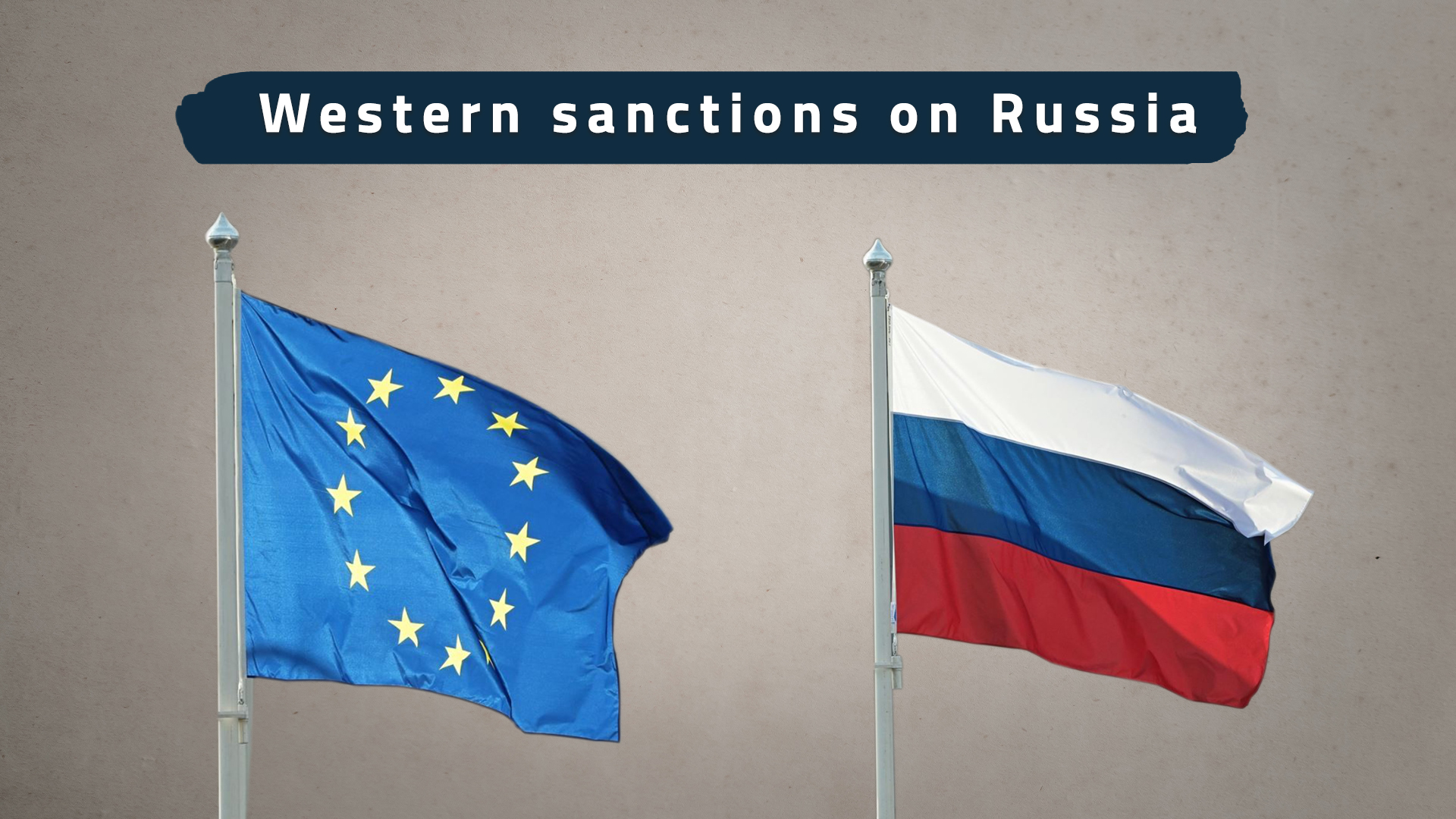Western sanctions on Russia

The European Union (EU), the United States (US) and Britain imposed many sanctions on Russia, following its launch a large-scale military operation against Ukraine. The pace of the sanctions increased with the passage of time, so that the Russian president did not expect this number of sanctions that would affect his country. The sanctions affected the Russian Central Bank and the Sovereign Wealth Fund, in addition to removing some Russian banks from the “SWIFT” system for global financial transfers. The sanctions also included freezing the assets of President Vladimir Putin, his Foreign Minister Sergey Lavrov and Defense Minister Sergei Shoigu. Also, the EU decided to ban the purchase of Russian coal, which is estimated at billions of dollars. The US joined Britain, the EU and Canada in banning all Russian flights from using its airspace, as well as closing ports to Russian ships. Besides, the US and Britain decided to ban Russian oil and gas in response to the Russian invasion of Ukraine. The EU pledged to end its dependence on Russian gas exports by 2030. The Western sanctions affected all sectors, even sports. On the other hand, Russia announced the closure of its airspace to flights from 36 countries that had previously taken similar measures against it, and threatened to impose sanctions against the West, including reducing or cutting gas supplies to Europe.
Although this war is between Russia and Ukraine, the real war is between the US and Russia. It is between a country that is trying to be a second pole, or at least a partner in the global system, and a country that rejects the existence of a country that shares areas of influence in the global system. In order for the US to defeat Russia as its competitor in the world order, it had to follow the policy of sanctions. There is no doubt that the US has allowed Russia to wage the war on Ukraine, which, according to Russia’s claim, has become a threat to it due to its demand to join NATO. Although Russia prepared for war for several years and prepared for all scenarios, it did not expect so many sanctions from the West. The US is trying to undermine the Russian economy and turn Ukraine into a quagmire to drain Russia’s military and economic capabilities and thus remove it from the world arena as a competitor to the US as a second pole.
However, the US has not been able to directly influence the Russian economy or the Russian ruble. These sanctions need a period of time to show signs of their impact on the Russian economy because of the fact that some countries have supported Russia, so Russia has been able, thanks to its global position as a source of gas and oil, to keep its economy from collapsing, and the value of the ruble increased compared to the pre-war phase, as oil and gas were linked to the Russian ruble instead of the dollar, and so the ruble was tied to gold. This policy emptied the US sanctions of their content to some extent. Therefore, Western countries began searching for alternatives to Russian gas, whether from North Africa (Algeria is Europe’s third supplier of gas), from the West and Nigeria, but these countries will not be able to meet Europe’s need, as they need Middle Eastern gas to meet their needs of gas and dispense with Russian gas. Other countries must also join the Western sanctions on Russia, such as the Turkish occupation state, which will play a prominent role in increasing the impact of the Western sanctions on Russia, and Turkey may turn into a region for the transit of Middle Eastern gas to Europe instead of Russian gas.
In this context, the US is trying to isolate Russia globally and politically by expelling diplomats or reducing the number of embassy workers, as Britain, Germany and other European countries did, and economically by stopping European countries’ dependence on Russian oil and gas imports, banning Russian products, and putting pressure on allies and partners and impose sanctions on them if the sanctions imposed on Russia are violated.
So that if the US succeeds in its policy towards Russia, Russia will become besieged and on its way to becoming a semi-closed economy, which will negatively reflect on the world and a global food crisis may arise. The European Bank for Reconstruction and Development expects the Russian economy to shrink by 10% this year. In all cases, Russia will suffer from economic crises as a result of Western sanctions, which will reflect on the military situation in Ukraine and may increase escalation, and the world will be facing a major economic crisis.




